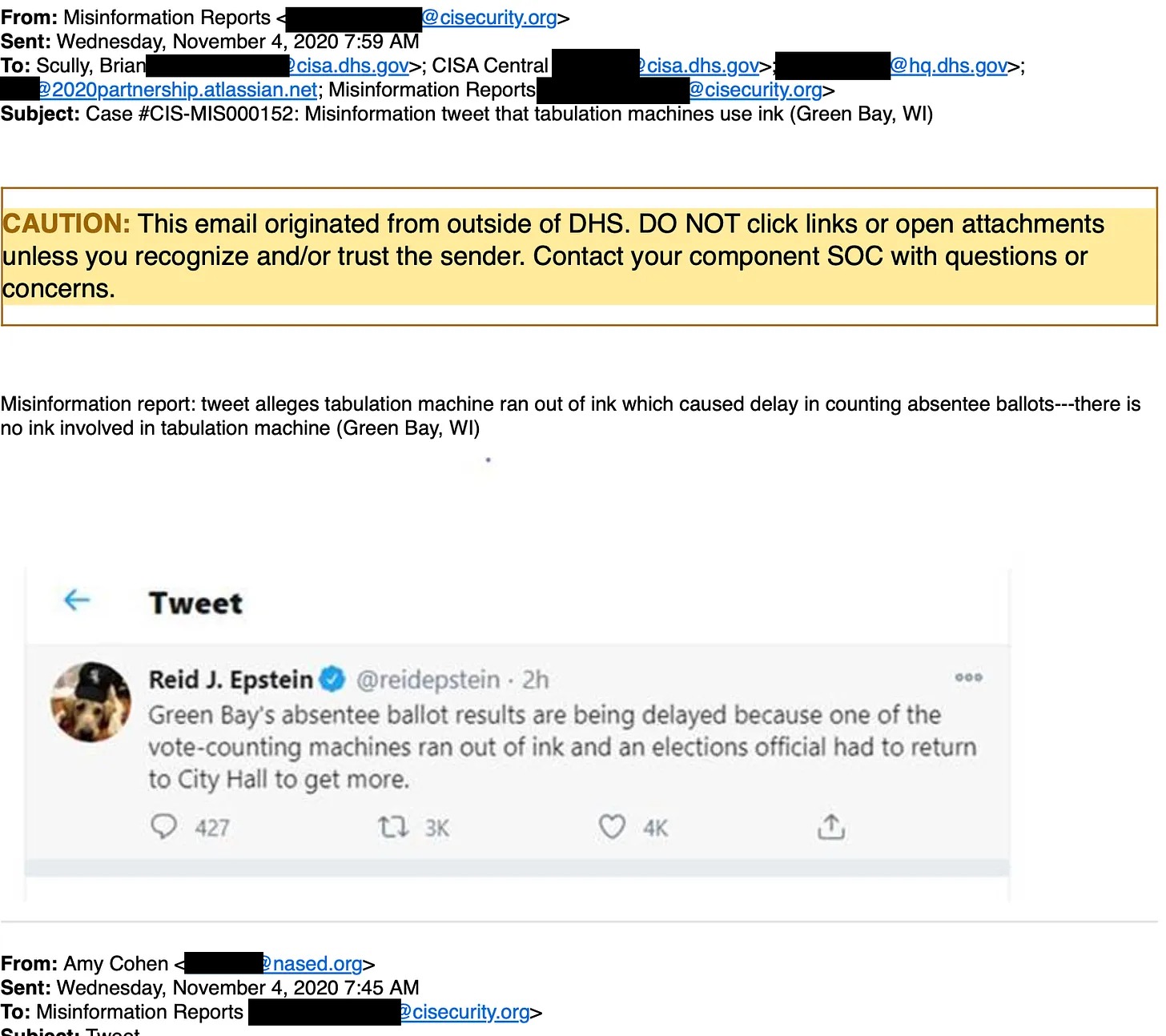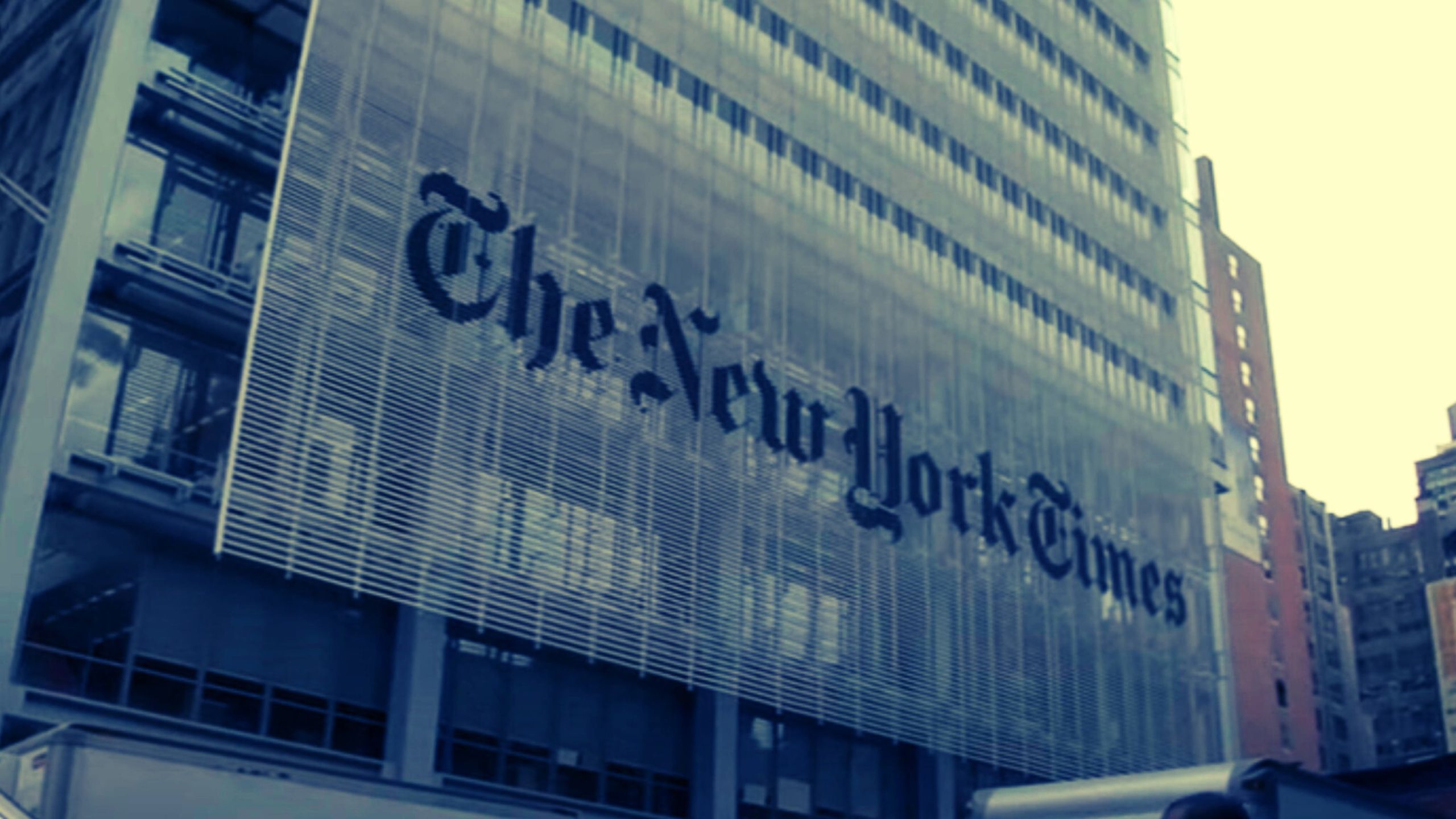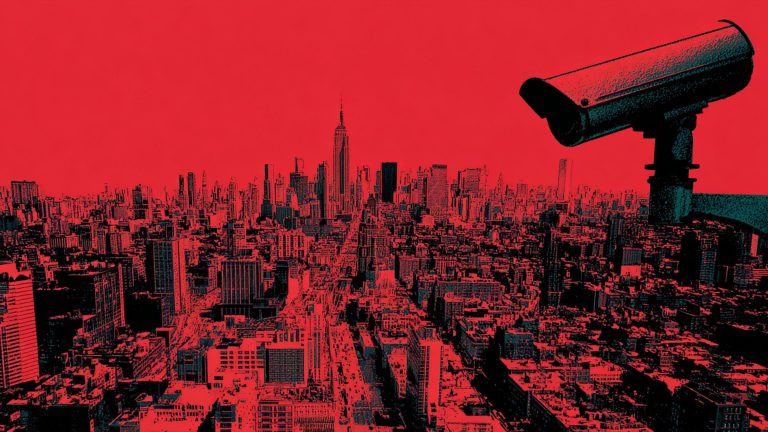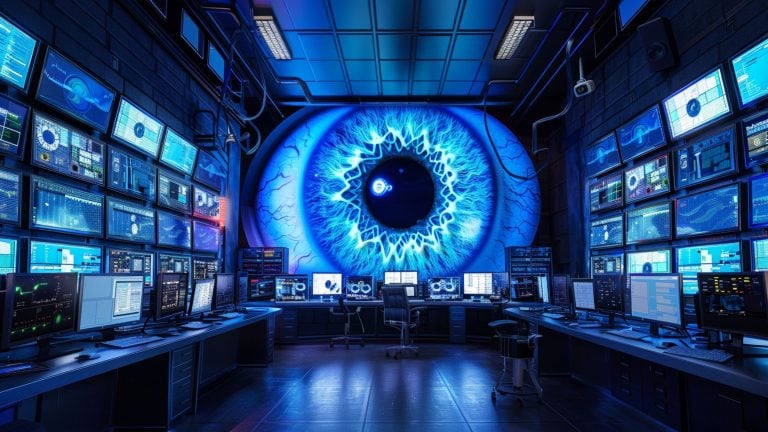Investigative reporter Lee Fang continues exploring the documents that made the Twitter Files possible – including a case where even a New York Times reporter got wrongly “shadow-banned” as a proponent of election misinformation.
Fang, who worked with RealClearInvestigations on this latest piece, meant to have it out ahead of today’s congressional hearing, but says it will either way be a part of the House Select Subcommittee on Weaponization which goes into “social media censorship AI, and, free speech.”
The NYT reporter at the center of this story is Reid Epstein, and the context is the prolonged vote-counting in a swing state, back in 2020. The state was Wisconsin, and this was the tweet that got Epstein in trouble: “Green Bay’s absentee ballot results are being delayed because one of the vote-counting machines ran out of ink and an elections official had to return to City Hall to get more.”
Apparently, November 2020 was not the best time to just report the news. Even if this snippet a mere 8 minutes later got “addressed”: Epstein tweeted again, “Clerk has returned with printer ink!”

But such apparently was the zeal not to let the tiniest bit of actual news get in the way of the narrative – even if the news was innocuous enough and true, that Epstein got the attention of the government and Big Tech.
And not in a good way.
So much so that, according to the Twitter Files cited by Fang, it prompted none other than the Department of Homeland Security (DHS) “and others” to action. Like the mythical Cerberus, these people/agencies were determined to guard the narrative of a clean as a whistle, and just in general unquestionable, integrity and fairness of the 2020 election.
The machine went into high gear immediately after Epstein’s first tweet, with various officials “setting the record straight” – and the thing was happening almost in real-time.
Minutes apart, various (effectively) pro-Biden official accounts were refuting Epstein’s original tweet with an urgency that seems ill-matched with the relevancy of the original tweet. But, one might conclude, such was the fear and uncertainty over Biden’s election that no chances whatsoever were to be taken.
Things escalated all the way to the DHS – even though the “escalating tweet” never actually got retracted by the reporter or the newspaper. But, writes Fang, “neither Epstein nor the Times appear to have pushed back against the shadow-ban on the tweet.”
“There is no ink involved in the machines used in tabulation of the ballots, a fact confirmed by the state,” said the Center for Internet Security (CIS) – “a contractor tasked with facilitating misinformation reports from a variety of stakeholders to DHS and private social media,” writes Fang.
CIS then “quickly elevated the tweet in a ‘Misinformation Report’ sent to officials at the Cybersecurity and Infrastructure Security Agency (CISA), the DHS sub-agency with a focus on policing social media.”
“The legality of such measures is now under Supreme Court review,” the investigative reporter writes and concludes:
“The court is scheduled to hear oral arguments in Missouri v. Biden, re-titled Murthy v. Missouri, which challenges the constitutionality of government social media interventions as a form of censorship, beginning next month.”








